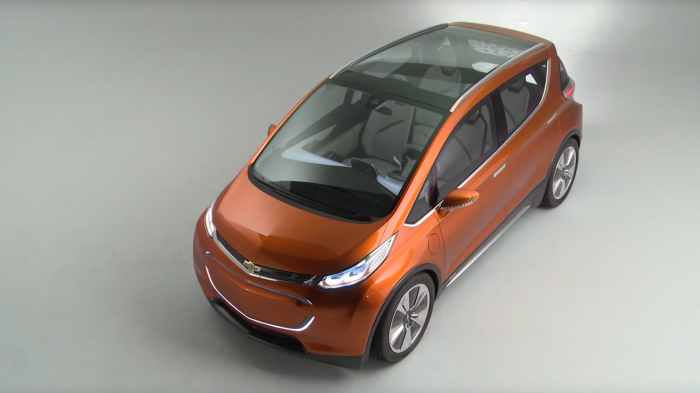An Electric Car Future Needs Non-Trumpian Policies
Automakers continue to push electric cars—but demand for the vehicles is currently limited, and the kinds of policy decisions required to make them popular may never materialize.
Every self-respecting car manufacturer appears to be clamoring to be seen as a proponent of electric vehicles. BMW’s CEO apparently wants to sell 100,000 electric cars in 2017. The chairman of Daimler-Benz has even addressed Germany’s Greens party congress to tell them that he shares their vision of emission-free vehicles.
Meanwhile, in keeping with a trend observed at the Paris Motor Show, automakers are announcing many new electric cars. At this week’s Los Angeles Auto Show, more manufacturers—including Hyundai, Mitsubishi, and Jaguar Land Rover—are expected to show off new electric vehicles.

But as the Wall Street Journal argues, supply looks set to exceed demand. While electric vehicle adoption is beginning to rise significantly in some countries, the U.S. isn’t one of them. The newspaper points to the low gas prices and America’s continued love of SUVs (most electric cars are sedans) as too tempting for drivers who may be considering the switch.
We shouldn’t be surprised. A recent study by Bloomberg New Energy Finance and McKinsey & Company suggested that a purely consumer-driven adoption of electric vehicles could lag behind a regulatory-driven approach by somewhere between five and seven years. A serious policy intervention is needed if electric car demand is going to grow to match supply.
The Obama administration's recent announcement of a network of 35 electric-vehicle charging corridors, a move to allay range anxiety, is a start. But it’s not enough. Instead, equivalents to Germany’s call to ban the internal-combustion engine by 2030 or the EU’s directive to ensure that every new house has a charging point are required.
Now more than ever, that looks unlikely to happen. Donald Trump has stated desires to pull out of the Paris agreement and burn more fossil fuels, which are certainly at odds with ushering in the electric vehicle revolution. As Bloomberg notes, his administration could even cut the $7,500 federal tax break which currently acts as an incentive for electric car buyers.
If that were to happen, it would affect some automakers more than others. The policy only applies to the first 200,000 vehicles sold by a manufacturer, a number toward which only Tesla has made any real progress to date. Bloomberg reckons that “removing the tax break now would effectively pull the ladder up behind Tesla and make it more expensive for other automakers to transition to battery power.”
In other words, there’s the real concern that federal policy decisions could have a detrimental effect on the uptake of electric cars. States with an interest in the climate might be able to take up some of the slack, but that wouldn’t necessarily be enough to foster adoption. The great American gas guzzler, it seems, may continue to rule the roads for some time.
(Read more: Wall Street Journal, Bloomberg, “The Troubling Road for Climate and Energy Under President Trump,” “Here’s How to Speed Up the Electric-Car Revolution,” “Cheap Gas and Big Cars Are Killing Obama’s Fuel Economy Push”)
Keep Reading
Most Popular
Large language models can do jaw-dropping things. But nobody knows exactly why.
And that's a problem. Figuring it out is one of the biggest scientific puzzles of our time and a crucial step towards controlling more powerful future models.
How scientists traced a mysterious covid case back to six toilets
When wastewater surveillance turns into a hunt for a single infected individual, the ethics get tricky.
The problem with plug-in hybrids? Their drivers.
Plug-in hybrids are often sold as a transition to EVs, but new data from Europe shows we’re still underestimating the emissions they produce.
Stay connected
Get the latest updates from
MIT Technology Review
Discover special offers, top stories, upcoming events, and more.